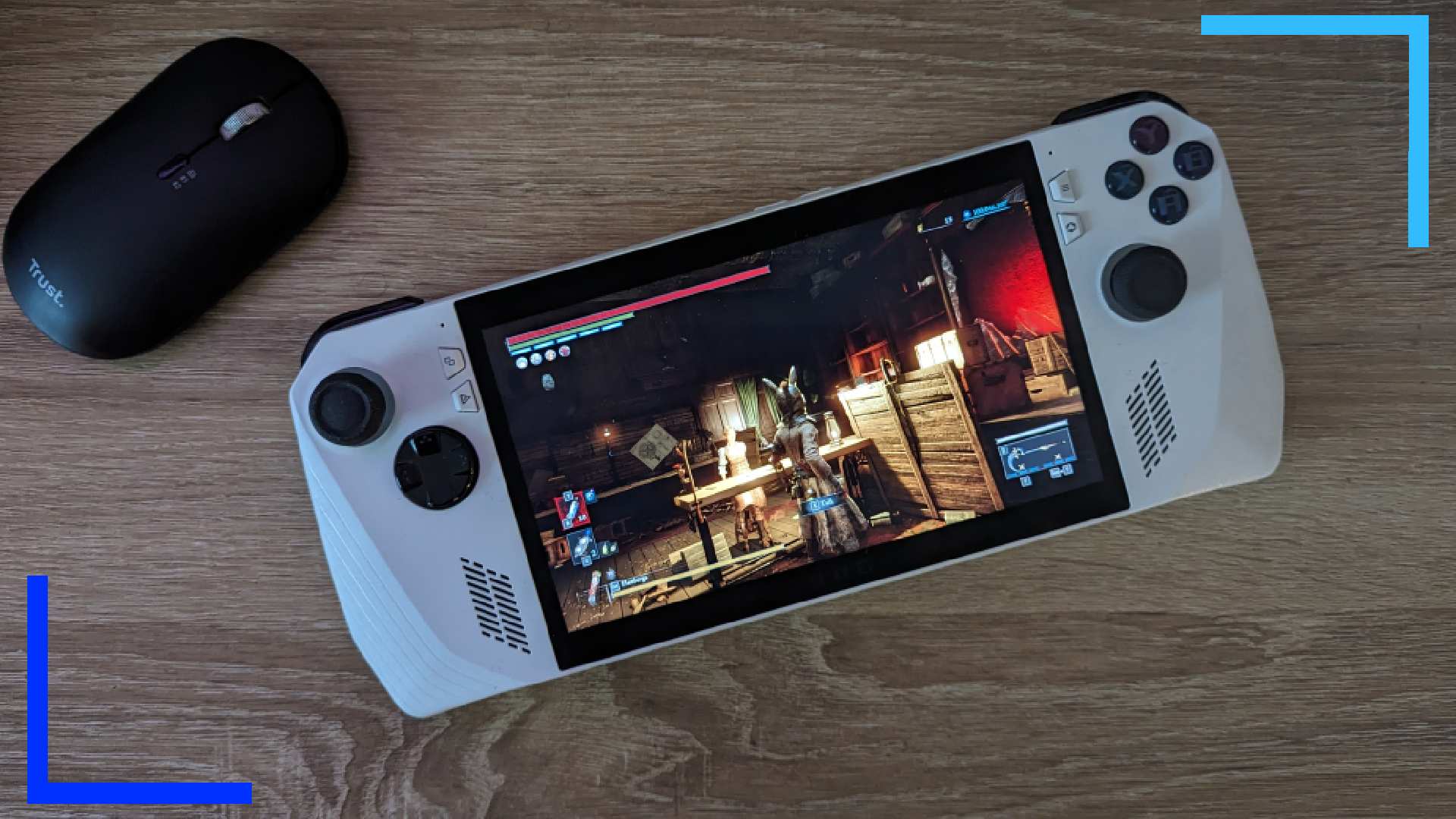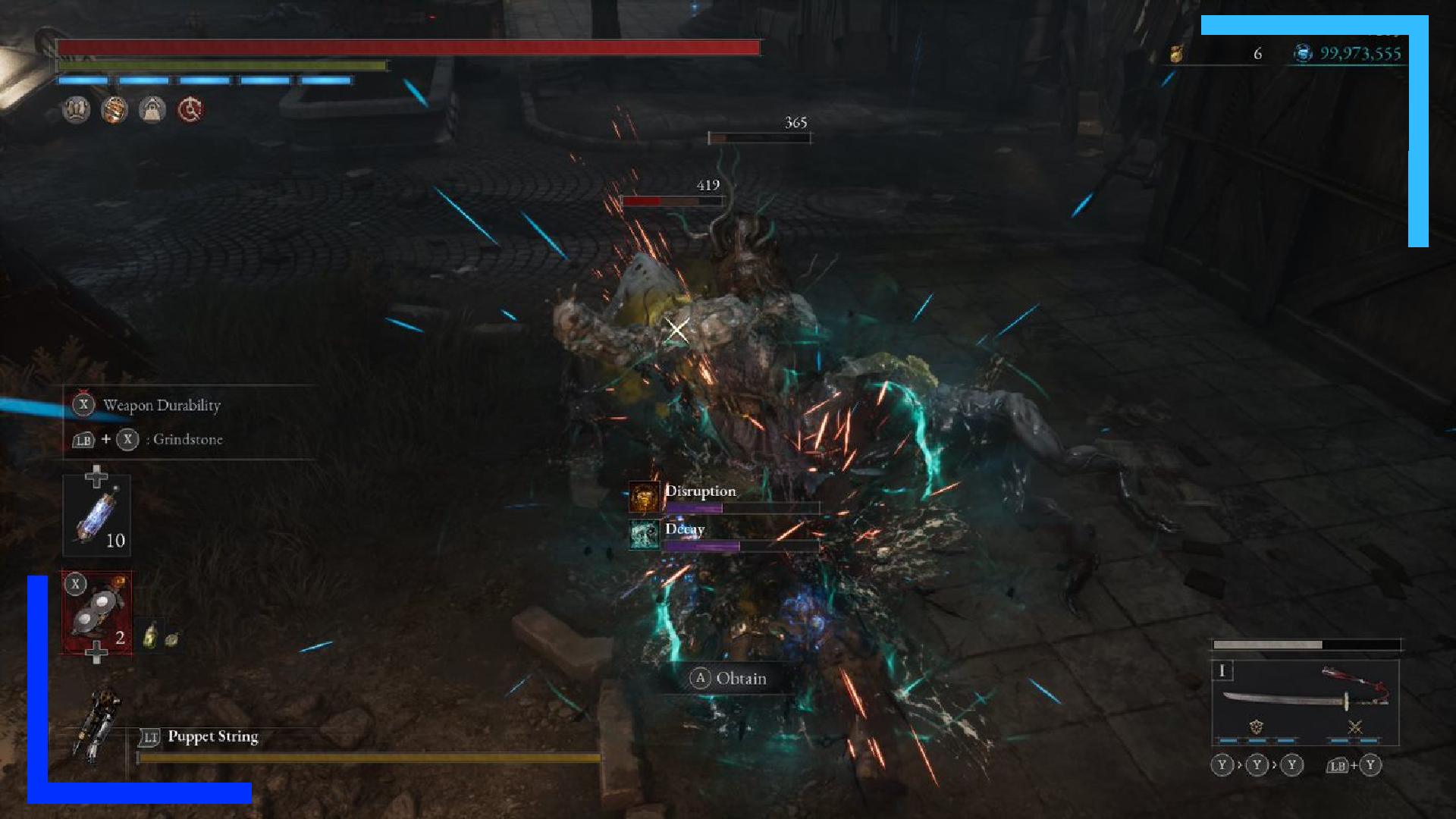Lies of P is a beautifully macabre game that needs a good screen to get the most out of the visuals. But how does Lies of P run on the ASUS ROG Ally how can you get fluid performance? I’ve played through the entire game to completion so I can answer those questions.
Performance.

I’ve played all of the Dark Souls games, Bloodborne, and Elden Ring and I can’t undersell just how important a consistent framerate is to gameplay. When attacks need to be timed, when dodge rolls are crucial to survival, having a solid framerate makes the learning curve much more manageable.
Lies of P falls into the Soulsborne genre – a collective name given to difficult action RPGs – and as such, getting a smooth framerate is key to the enjoyment. The fewer frames on offer, the harder the game is to read. With that in mind, I’m happy to report I was able to play Lies of P at a solid framerate for the most part. There are areas where a lot is happening on-screen that can cause frames to drop, but these sections are few and far between.

The key to getting a smooth framerate all comes down to how much power you want to draw from the battery. When I played Lies of P in the ROG Ally’s 15-watt mode, I was averaging between 40 and 55 frames. This, to me, is very playable and feels fluid enough. Although switching to the 25-watt Turbo power mode on the ROG Ally will deplete the battery much faster, Turbo yields the best results, averaging between 55 to 60 frames per second.
If you value battery life over smoothness, go with the 15-watt mode. If, however, you want the most fluid performance, go with Turbo mode. That will keep the frames at their highest and result in a game that’s much easier to read what’s happening on-screen.
Settings.

The settings below are what I settled on through my main playthrough of Lies of P. It is possible to get by for a large portion of Lies of P by setting everything to medium and using the 25-watt Turbo mode, but I found there were areas where dropping the settings to what I used below helped to stabilize the framerate to as close to 60 as you can get it. By all means, feel free to try the game out with everything set to medium for yourself, but I’d wager you’ll come back to my mix of low and medium after a few hours.
The upside of using my settings is you can keep the game running at a lush 1080p. The game is simply stunning, so the first thing I did was to make sure I didn’t need to drop it to 720p. That would be doing the game and the ROG Ally’s beautiful screen a massive disservice. Keep it at 1080p and you’ll be happy.
As I mentioned previously, you can get by playing with the 15-watt mode enabled, but the loss of around 15 frames isn’t a trade-off most will want to make. I prefer games like these to run as close to 60 frames per second as possible so I can use every frame to my advantage.
| Lies of P Settings for ASUS ROG Ally | |
| Visibility | Low |
| Anti-Aliasing Quality | Medium |
| Post Processing Quality | Medium |
| Shadow Quality | Medium |
| Texture Quality | Low |
| Effect Quality | Low |
| Vegetation Quality | Medium |
| Anisotropic Filter Quality | Medium |
| Reflection Quality | Low |
| Volumetric Fog Quality | Medium |
| Ambiet Occlusion Quality | Medium |
| Anisotropic Filter Quality | Low |
| ASUS ROG Ally Settings | |
| Profile: Turbo 25w (60 frames per second) | Estimated Battery Life: 1 Hour 10 Minutes |
| Resolution: 1920×1080 | Temperature: 80 degrees |
| GPU Usage: 90% | CPU Usage: 26% |
| Performance Rating: 4/5 | |
Bugs and Issues.

Throughout my playthrough, I didn’t spot any major bugs or issues. There were slight problems with fall damage not registering or two areas where my camera became unlocked, but these issues were solved by reloading my save.
Should You Play Lies of P?

Despite being sold as a Bloodborne alternative, Lies of P is actually at its best when it’s doing its own thing. I’m a fan of twisted fairytales (think Alice: Madness Returns) and Lies of P captivates with sincere horror and combat that feels more like chess. Every stab or thrust is measured to get the most out of it. It’s only when you start throwing caution to the wind that this doll falls apart.
Lies of P has been optimized superbly and being able to run a modern AAA game like this on the ASUS ROG Ally is a pleasant surprise. Especially as I was expecting to have to make several allowances to get it to run.
The bottom line: If you want a fresh take on Bloodborne that actually moves the groundwork laid down by FROM Software forward, Lies of P comes easy to recommend.

Disclosure: Review code provided by ICO Partners. | All screenshots in this review were captured on ASUS ROG Ally hardware. To learn more about our review policy click here. | Alternatively, click here to find out why you can trust me.

